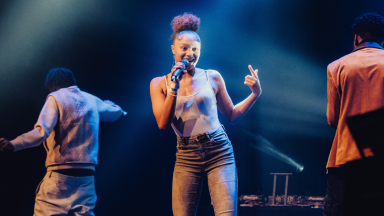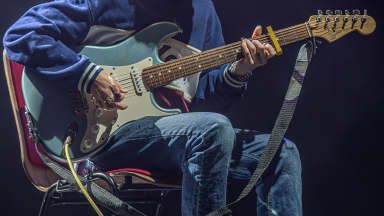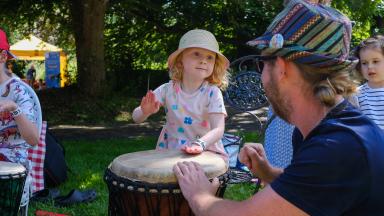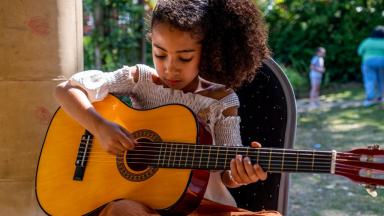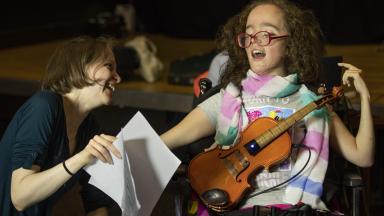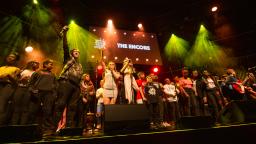
Since our beginnings in 1999, Youth Music has championed the importance of inclusion in music making, learning and earning. We work to drive change on a local and national level, ensuring every young person can experience inclusive music from ages 0-25. We take an equitable approach to investing in our funded partners and programmes.
Our commitment to IDEA (Inclusion, Diversity, Equity and Access) is at the heart of all Youth Music's strands of work, including organisational learning and change. We’re committed to self-reflection, gaining feedback and exploring new ideas through the diversity of lived experience within our team and beyond.
We take action as an organisation to ensure our workforce and workplaces are inclusive and accessible. We know that we can better serve the young people we reach through a team that understands, respects and reflects their diversity.
It’s important to Youth Music that our learning is ongoing and evolving. On this page we will regularly publish key reports, resources and policies that explore and reflect our IDEA progress as a team. See below for the latest updates.
Decolonising the Music Curriculum
From jungle to grime, UK garage to Afroswing, Black British music has shaped the world. So why isn’t it in classrooms? Remi Fairweather Stride, Chair of our IDEA Working Group, calls for faster progress in decolonising the music curriculum.
Let’s Talk About the Class Ceiling in Music
The creative industries in the UK have a problem with working-class representation. How can we help to build a music industry that better reflects our society?
Workforce Demographic Data
Annually, we collect workforce the diversity data of our Staff, Trustees and Freelance team. This helps us to understand the diversity of the people we work with, and how this has changed in response to actions we’ve taken.
The IDEA Working Group and our Language Series
We meet every two months as a forum to discuss IDEA topics and principles, and how they’re applied internally.
How and why you should update language in your organisation
Global Majority or BAME? Disabled or d/Deaf and Disabled? Which language should we use? And how do we make those decisions?
How Youth Music uses data collection to track diversity
It's crucial in understanding where there may be inequalities, barriers to opportunities and to progression.
Building equality, diversity and inclusion in our funding practices
Our impact will be greater if our work is designed and delivered by the people we serve.

